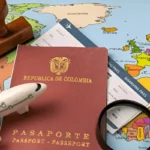Introduction
What is a Travel Agent?
A travel agent is a professional who assists individuals and groups in planning, organizing, and booking various aspects of their trips. They serve as a knowledgeable intermediary between travelers and travel suppliers, such as airlines, hotels, cruise lines, and tour operators.
Role of Travel Agents
Travel agents play a crucial role in the travel industry by providing expert guidance, personalized recommendations, and seamless coordination of travel arrangements. They help clients navigate the complexities of travel planning, ensuring a hassle-free and enjoyable experience.
Importance of Travel Agents
In today’s digital age, where online booking platforms have proliferated, the role of travel agents remains invaluable. They offer personalized service, insider knowledge, and access to exclusive deals and discounts, making them a valuable asset for both leisure and business travelers.
Table of Contents
- Introduction
- Commission-Based Earnings
- Service Fees
- Package Tours and Group Bookings
- Supplier Incentives and Overrides
- Niche Specialization
- Additional Revenue Streams
- Challenges and Considerations
- Conclusion
Commission-Based Earnings

One of the primary ways travel agents make money is through commissions earned from booking travel services on behalf of their clients. These commissions are typically paid by travel suppliers, such as airlines, hotels, and cruise lines.
Airline Commissions
When booking airline tickets, travel agents receive a commission from the airline, which is typically a percentage of the total fare. The commission rate varies depending on the airline and the type of ticket booked (e.g., economy, business, or first class).
Hotel Commissions
Similarly, travel agents earn commissions when booking hotel stays for their clients. The commission rate is generally a percentage of the room rate and can vary based on factors such as the hotel brand, location, and the agent’s relationship with the hotel or booking platform.
Cruise Commissions
Cruise lines also pay commissions to travel agents for booking cruise vacations. These commissions are typically calculated as a percentage of the cruise fare and can be higher for more expensive or longer cruises.
Service Fees

In addition to commissions, travel agents often charge service fees to their clients. These fees are directly paid by the client and can be a significant source of revenue for travel agents.
Consultation Fees
Some travel agents charge consultation fees for providing personalized travel planning and advice. These fees are typically charged upfront and can vary based on the complexity of the travel plans and the level of expertise required.
Booking Fees
Travel agents may also charge booking fees for their services in coordinating and booking travel arrangements. These fees can be flat rates or a percentage of the total travel cost.
Service Charges
Service charges are additional fees that travel agents may impose for specific services or tasks, such as making changes to existing reservations, handling complex itineraries, or providing after-hours support.
Factors Affecting Service Fees
The service fees charged by travel agents can vary based on several factors, including:
- Complexity of Travel Plans: More complex itineraries involving multiple destinations, modes of transportation, or special arrangements may warrant higher service fees.
- Personalized Service: Travel agents who offer a high level of personalized service and attention to detail may charge higher fees to reflect the added value they provide.
- Destination Expertise: Agents with specialized knowledge and expertise in specific destinations or types of travel (e.g., luxury, adventure, or destination weddings) can command higher service fees due to their niche expertise.
Package Tours and Group Bookings

Travel agents can generate significant revenue by organizing and selling package tours and group bookings. These types of bookings often involve negotiating special rates and securing discounts from travel suppliers.
Package Tour Commissions
When selling package tours, travel agents earn commissions based on the total cost of the tour package. These commissions can be substantial, especially for high-end or luxury tour packages.
Group Bookings Commissions
Similarly, travel agents can earn commissions by arranging group travel bookings for events such as weddings, corporate retreats, or family reunions. These commissions are typically based on the total cost of the group booking and can be lucrative due to the volume of travelers involved.
Negotiated Rates
For both package tours and group bookings, travel agents leverage their relationships with suppliers to negotiate special rates and discounts. These negotiated rates can result in higher profit margins for the travel agent, while still offering competitive pricing to their clients.
Supplier Incentives and Overrides

Travel agents can also earn additional income through supplier incentives and overrides, which are bonuses or rewards offered by travel suppliers for meeting certain sales targets or promoting their products.
Preferred Supplier Programs
Many travel suppliers have preferred supplier programs, where they offer incentives and benefits to travel agents who prioritize selling their products. These incentives can include higher commissions, bonus payments, or access to exclusive offers and rates.
Overrides and Bonuses
Travel agents may also receive overrides or bonuses from suppliers based on the volume of bookings they generate. For example, an airline might offer a bonus commission or override to travel agents who exceed a certain threshold of ticket sales within a specific period.
Volume-Based Incentives
In addition to overrides, some travel suppliers offer volume-based incentives, such as free or discounted travel, complimentary upgrades, or loyalty program benefits, to travel agents who generate a high volume of bookings with their company.
Importance of Supplier Relationships
Building strong relationships with travel suppliers is crucial for travel agents to maximize their earning potential through incentives and overrides. These relationships can provide the following benefits:
- Access to Special Deals: Travel agents with strong supplier relationships may gain access to exclusive deals, rates, and promotions that can be passed on to their clients, enhancing their competitiveness and value proposition.
- Exclusive Rates: Suppliers often offer special negotiated rates and discounts to their preferred travel agents, allowing them to provide their clients with more competitive pricing.
- Enhanced Customer Experience: Travel agents with strong supplier relationships can leverage their connections to provide their clients with personalized experiences, such as room upgrades, amenities, or special arrangements, enhancing the overall customer experience.
Niche Specialization
Many travel agents choose to specialize in specific niches or types of travel to differentiate themselves and command higher earning potential. By becoming experts in a particular area, they can attract clients seeking specialized knowledge and tailored services.
Luxury Travel
Luxury travel is a lucrative niche for travel agents, catering to affluent clients seeking high-end experiences and personalized service. Luxury travel agents often earn higher commissions and service fees due to the premium nature of the services they provide.
Adventure Travel
Adventure travel, such as expeditions, safaris, or extreme sports trips, is another niche that can be highly profitable for travel agents. These types of trips often require extensive planning, specialized knowledge, and additional services like travel insurance or equipment rentals, allowing agents to earn higher commissions and fees.
Destination Weddings
Destination wedding planners are travel agents who specialize in organizing and coordinating weddings and honeymoons in desirable locations around the world. This niche combines travel expertise with event planning skills, enabling agents to charge premium fees for their services.
Benefits of Specialization
Specializing in a particular niche offers several benefits for travel agents:
- Expertise and Knowledge: By focusing on a specific area, travel agents can develop deep expertise and knowledge, making them valuable resources for clients seeking specialized travel experiences.
- Targeted Marketing: Niche specialization allows travel agents to tailor their marketing efforts and positioning toward a specific target audience, increasing their visibility and attracting clients with similar interests.
- Higher Earning Potential: Specialized knowledge and services often command higher fees and commissions, as clients are willing to pay a premium for the expertise and personalized attention provided by niche travel agents.
Additional Revenue Streams
Savvy travel agents often explore additional revenue streams to supplement their income from commissions and service fees. These can include:
Travel Insurance Sales
Many travel agents earn commissions by selling travel insurance policies to their clients. These policies can provide coverage for trip cancellations, medical emergencies, lost or delayed baggage, and other travel-related incidents.
Ancillary Services
Travel agents may offer ancillary services such as visa assistance, currency exchange, or luggage delivery services, for which they can charge additional fees.
Referral Programs
Some travel agents participate in referral programs, where they earn a commission or bonus for referring clients to other travel-related businesses, such as rental car companies, tour operators, or travel gear retailers.
Challenges and Considerations
While the travel agent profession offers various earning opportunities, it is not without its challenges and considerations. Some of the key factors to be aware of include:
Online Travel Agencies
The rise of online travel agencies (OTAs) and direct booking platforms has created significant competition for traditional travel agents. OTAs often offer discounted rates and convenient online booking, which can make it challenging for travel agents to compete on price alone.
Changing Consumer Trends
Evolving consumer preferences and travel behaviors, such as the increasing popularity of sharing economy platforms like Airbnb and ride-sharing services, have disrupted the traditional travel industry and impacted the way travel agents operate.
Technology Disruptions
Technological advancements, including artificial intelligence and machine learning, have the potential to automate certain aspects of travel planning and booking, potentially reducing the need for human travel agents in some areas.
Adapting to the Market
To remain competitive and successful, travel agents must adapt to these challenges by:
- Embracing Technology: Integrating technology into their operations, such as online booking tools, mobile apps, and social media platforms, can help travel agents enhance their efficiency and customer experience.
- Enhancing Customer Service: Focusing on providing exceptional customer service, personalized attention, and expertise that cannot be replicated by online platforms can differentiate travel agents from their digital competitors.
- Diversifying Revenue Sources: Exploring multiple revenue streams, such as niche specialization, ancillary services, and supplier incentives, can help travel agents mitigate the impact of industry disruptions and maintain profitability.
Conclusion
Travel agents make money through a combination of commissions earned from booking travel services, service fees charged to clients, incentives and bonuses from travel suppliers, and additional revenue streams like niche specialization and ancillary services.
While the industry has faced challenges from online platforms and changing consumer trends, travel agents who adapt to these changes by embracing technology, enhancing customer service, and diversifying their revenue sources can continue to thrive and provide value to their clients.
Ultimately, the key to success for travel agents lies in their ability to leverage their expertise, personalized service, and strong supplier relationships to offer unique and tailored travel experiences that cannot be replicated by online platforms.
FAQs
1: Do travel agents still make good money?
Yes, travel agents can still make good money, especially those who specialize in niche areas, provide exceptional customer service, and diversify their revenue streams. While commissions from airlines and hotels have decreased over the years, savvy travel agents can compensate by charging service fees, earning bonuses from suppliers, and offering ancillary services.
2: How much commission do travel agents typically make?
The commission rates for travel agents can vary widely depending on the type of travel service being booked, the supplier, and the agent’s relationship with the supplier. Airline commissions typically range from 1% to 5% of the ticket price, while hotel commissions can be around 10% to 15% of the room rate. Cruise commissions are often higher, ranging from 10% to 20% of the cruise fare.
3: Do travel agents get discounts on their own travel?
Many travel agents do receive discounts or special rates on their own travel arrangements, especially when booking through preferred suppliers or taking advantage of supplier incentive programs. These discounts can include reduced airfare, hotel rates, or cruise fares, as well as complimentary upgrades or amenities.
4: Can travel agents work from home?
Yes, it is possible for travel agents to work from home, either as independent contractors or as employees of a travel agency. With the advent of online booking platforms and communication tools, many travel agents can conduct their business remotely, while still providing personalized service to their clients.
5: What qualifications are required to become a travel agent?
While formal education requirements vary by location and employer, most travel agents have at least a high school diploma or equivalent. Many pursue additional training or certification programs offered by organizations like The Travel Institute or the International Air Transport Association (IATA). Strong customer service skills, attention to detail, and a passion for travel are also essential qualities for successful travel agents.






